Shrines, castles, temples, and cathedrals are built to last, so it’s no wonder that they make up most of the oldest standing buildings in the world. Many of them were commissioned by emperors and kings and rank among the most beautiful architectural structures ever created. But what about the little people? How many of their homes stand the test of time?
Of course, the oldest houses in the world are caves – places where Stone Age humans carved out shelter from the elements. In Italy’s Sassi di Matera districts and Iran’s Meymand, caves like these were more or less continually inhabited for thousands of years – even up to the present day. There are also more modern types of homes that date back centuries. Both England and the Faroe Islands lay claim to some of the oldest inhabited houses in the world.
Sassi di Matera, Italy (c. 10,000 BC)
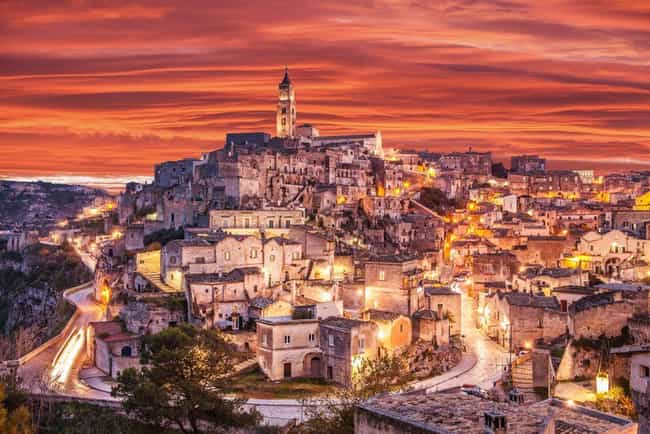
Located in Italy’s Basilicata region, the caves in Sassi di Matera show evidence of human habitation since the Paleolithic, or “Old Stone Age,” which ended about 12,000 years ago. UNESCO calls the site the “most outstanding, intact example of a troglodyte settlement in the Mediterranean region,” and some caverns have been converted into modern hotels.
Knap Of Howar, Scotland (c. 3500-3000 BC)
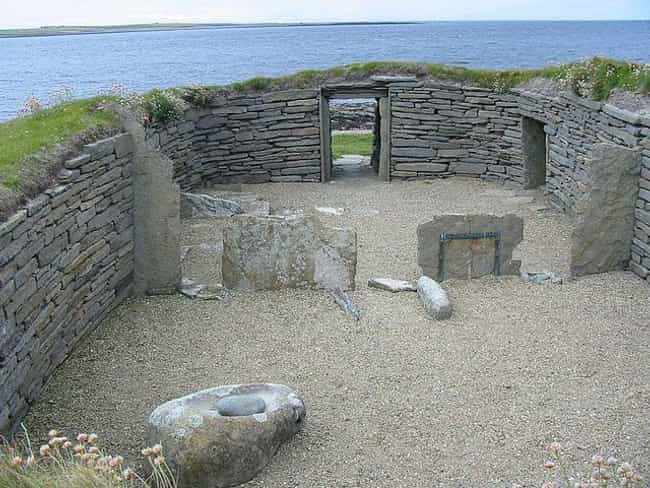
Constructed sometime during the Early Neolithic period, the Knap of Howar was discovered in the late 1920s when the structure was exposed by winter storms. Historic Environment Scotland has deemed it “the best preserved and most complete example of an Early Neolithic stone house known in Scotland (and possibly in north-west Europe).”
Jarlshof, Scotland (c. 2700 BC)
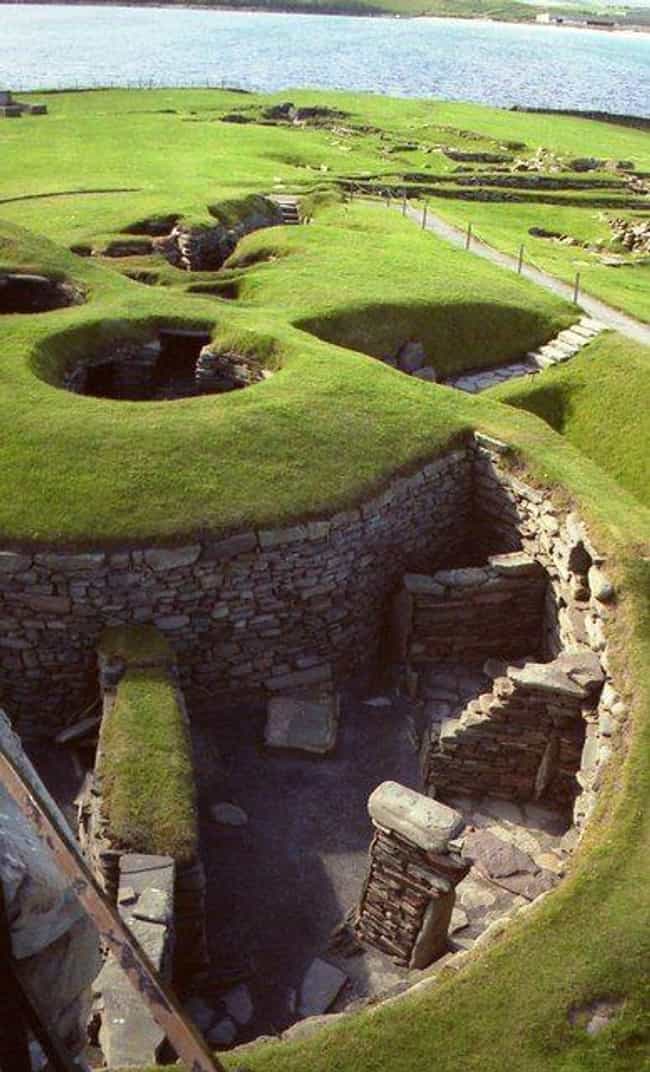
First settled by Neolithic people in the Bronze Age, Jarlshof remained in use up until 1600 AD.
Meymand, Iran (c. 2000 BC)
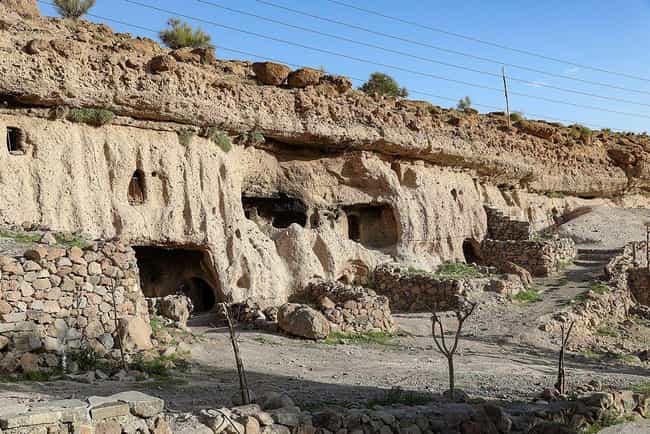
The area now known as Meymand was originally settled during the Stone Age. Relatively speaking, its 300 cave dwellings are fairly young; they’ve only been inhabited for the last three or four millennia.
Mousa Broch, Scotland (c. 300 BC)
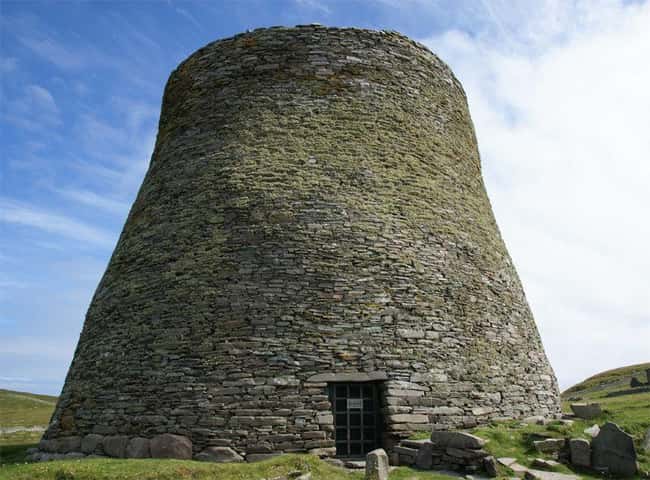
The “best-preserved” of Scotland’s Iron Age roundhouses, Mousa Broch is mentioned in ancient Norse sagas.
Roman Lighthouse, England (c. 2nd Century AD)
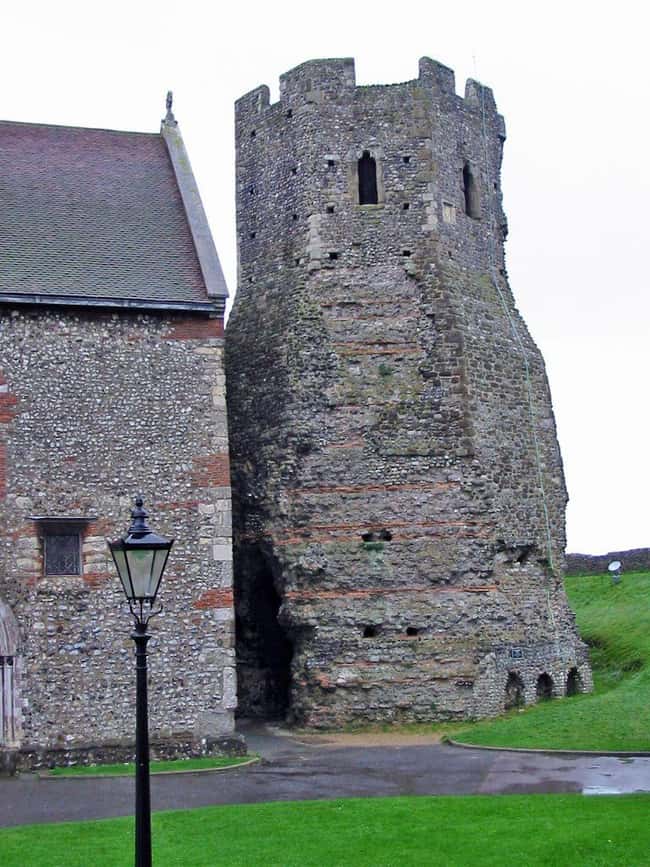
Located at Dover Castle in Kent, England, this lighthouse (or “pharos”) is one of only three to survive the fall of the Roman Empire. It’s also “the most complete standing Roman building in England,” according to Google Arts & Culture.
St. George Monastery, Palestine (c. 420 AD)
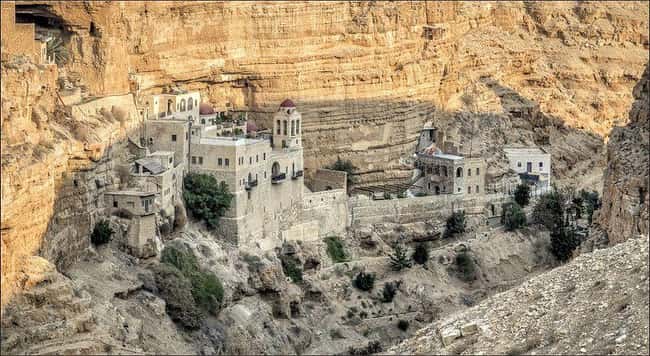
The Monastery of Saints John and George of Choziba was originally a lavra, or cluster of caves that served as homes for hermits. It was reorganized into a monastery in the 500s, destroyed and rebuilt a few times, and is today inhabited by Greek Orthodox monks.
Saltford Manor House, England (c. 1148 AD)
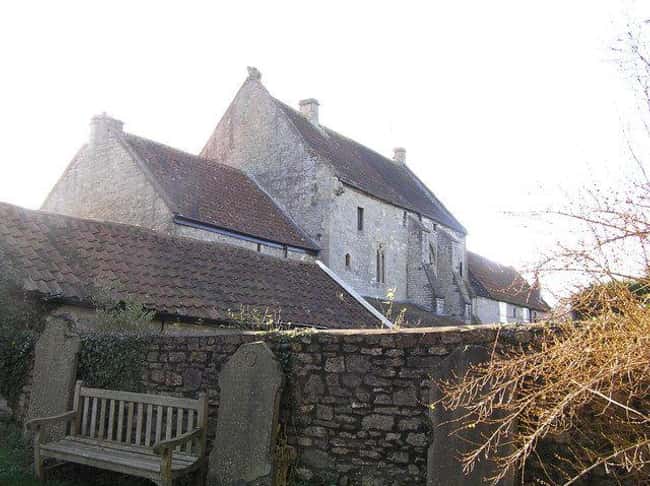
Somerset’s Saltford Manor House is considered “the oldest continuously inhabited house in Britain,” according to architectural historian John Goodall.
Acoma Pueblo, USA (c. 1150 AD)
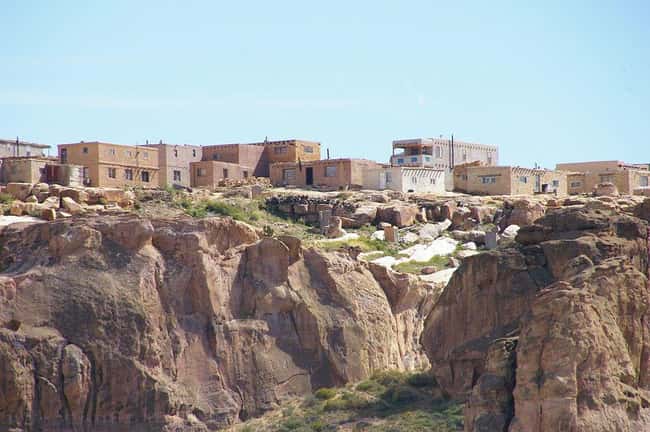
Originally home to the Anasazi people, “Sky City” is located in New Mexico, USA, and is “the oldest continuously inhabited community in North America.” [Ed. Note: Wikipedia says “The Acoma have continuously occupied the area for over 2000 years, making this one of the oldest continuously inhabited communities in the United States (along with Taos and Hopi pueblos).”
Kirkjubøargarður, Faroe Islands (c. 11th Century)
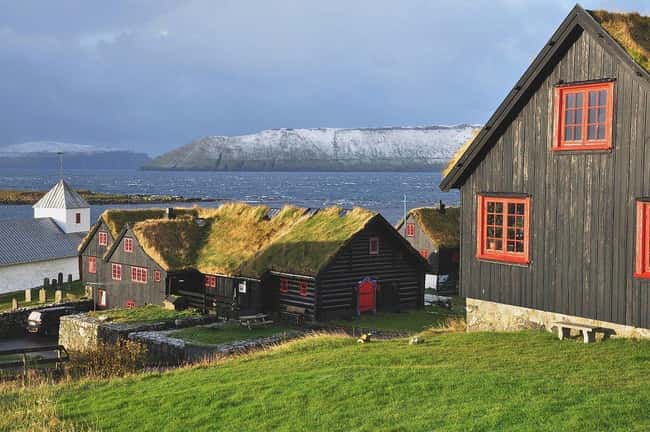
Kirkjubøargarður, also known as Roykstovan, is a 900-year-old farm house. Multiple tour guides describe it as one of the oldest inhabited wooden houses in Europe.
Kandovan, Iran (c. 13th Century AD)
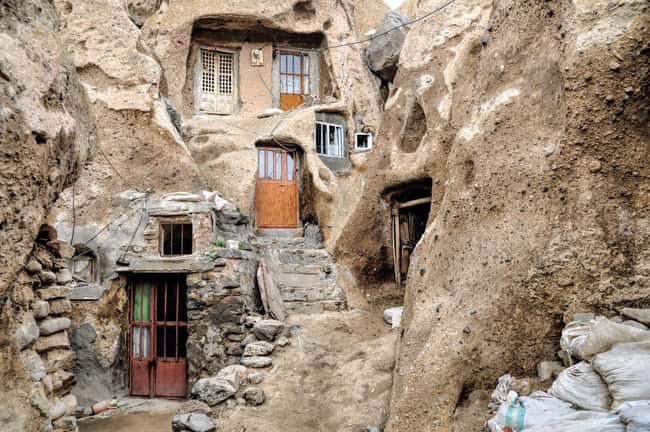
Located in Iran’s East Azerbaijan province’s Osku county, Kandovan gets its name from the Persian word “Kandoo,” which means bee hives. Founded in the 1200s, and likely inhabited in pre-Islamic times, the village was still home to 601 people as of the 2006 census.
Maison de Jeanne, France (c. 14th Century)
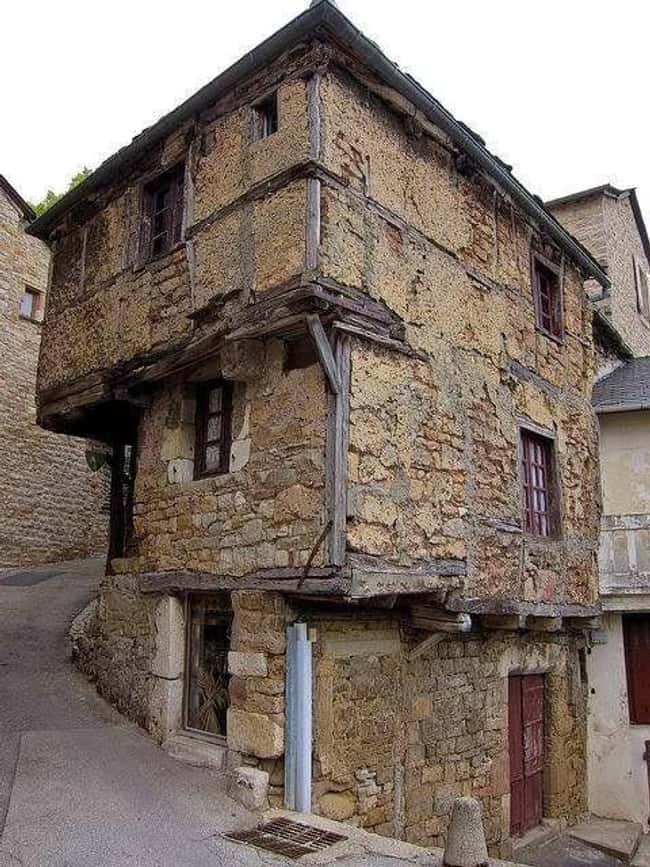
Maison de Jeanne is one of the oldest houses in Averyron, France, and can be found on the rue Belvezet in Sévérac-le-Château.
Thoor Ballylee, Ireland (c. 15th Or 16th Century)
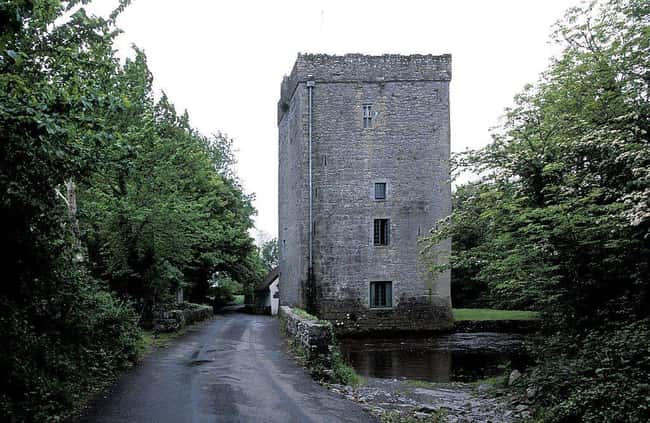
It is likely that Thoor Ballylee began as a timber fortress that was later converted into a stone tower in the 1400s or 1500s. It is today popularly known as Yeats Tower because Irish poet W. B. Yeats made it his home in the early 20th century (he purchased it in 1916 for just £35.)
Villa Capra detta La Rotonda, Italy (c. Late 16th Century)
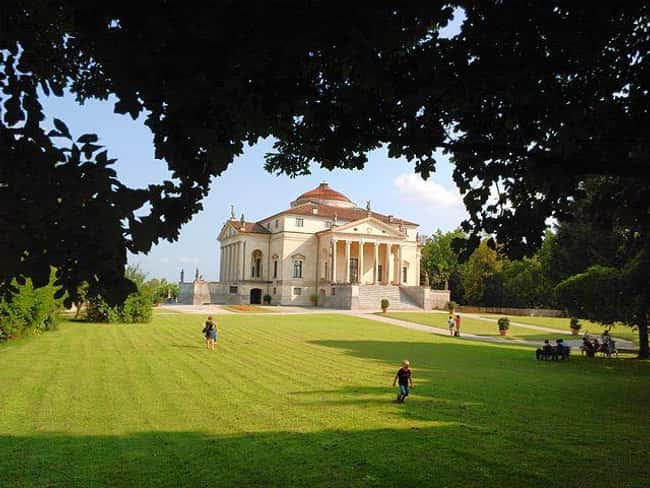
The Villa Rotonda was designed for Paolo Almerico, a Catholic priest, by the Italian Renaissance architect Andrea Palladio. It was completed sometime after 1591, and contains decorations by artists Lorenzo Rubini, Giambattista Albanese, Agostino Rubini, Ottavio Ridolfi, Bascapè, and Fontana.
Dar al-Hajar, Yemen (c. 18th Century AD)

Though the “Rock Palace” of Wadi Dhar only dates back to the 1920s, it sits atop a pre-existing structure that was built in the late 1700s.
–
(For the source of this, and many other equally intriguing articles, please visit: https://www.ranker.com/list/oldest-houses-in-the-world-still-standing/pierce-nahigyan/)









